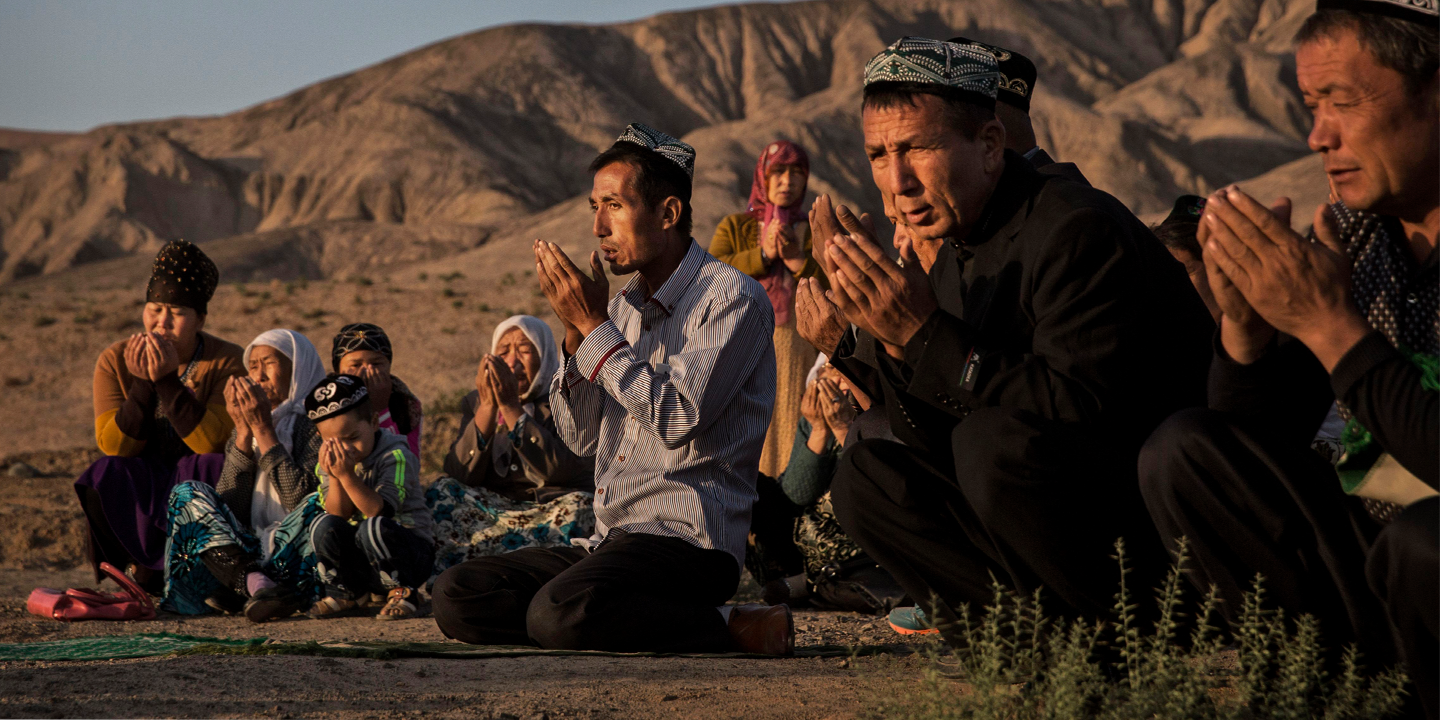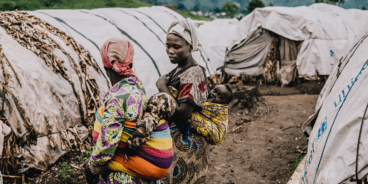

Atrocity Alert No. 218: Sudan, China and the International Day of the Victims of Enforced Disappearances
Atrocity Alert is a weekly publication by the Global Centre for the Responsibility to Protect highlighting situations where populations are at risk of, or are enduring, mass atrocity crimes.
Hopes that historic Sudan peace deal will end atrocities, promote justice
On 31 August the transitional government in Sudan and the leaders of the Sudan Revolutionary Front – a coalition of armed groups from Darfur, South Kordofan and Blue Nile – signed a historic peace agreement aimed at ending almost two decades of conflict. The signing of the agreement follows months of increased insecurity in Darfur, where inter-communal clashes have killed hundreds of people and led to widespread civilian displacement. Since the beginning of July, thousands of people in Darfur have also protested against the government’s inability to provide adequate protection against ongoing attacks by armed groups.
The peace agreement covers a broad range of issues, including integration of armed groups into the national army, as well as power sharing, land ownership, the return of refugees and justice and reconciliation. Michelle Bachelet, UN High Commissioner for Human Rights, welcomed the agreement, saying that it is “a major step in ending the suffering and human rights violations and abuses inflicted on the Sudanese people over the past decades.”
The peace agreement is also a historic opportunity for Sudan to come to terms with atrocities committed during the dictatorship of former President Omar al-Bashir. During 2003 government forces and allied janjaweed militias killed hundreds of thousands of civilians in Darfur, burned villages and displaced several million people. Thousands of women were also raped and subjected to sexual violence. Following a referral by the UN Security Council in 2005, Bashir and other senior officials were indicted by the International Criminal Court (ICC) for atrocities perpetrated in Darfur.
Despite the indictment, between 2011-2016 the Sudanese Armed Forces and armed groups also engaged in hostilities in South Kordofan and Blue Nile. Government forces and some armed groups carried out indiscriminate attacks on civilian-populated areas, displacing hundreds of thousands of people.
The government of Sudan and all other signatories to the peace agreement should expeditiously implement all of its provisions. In particular, the government should ensure accountability for past crimes, including by working closely with the ICC, and quickly establish agreed transitional justice and reconciliation mechanisms. Ending impunity for atrocities in Sudan could play an essential role in strengthening the country’s transition to democracy, peace and political stability. The government of Sudan should also continue negotiations with those armed groups that have not yet joined the historic agreement
New evidence of mass detention infrastructure in Xinjiang, China
Approximately 1 million Uighurs and other Muslim minorities are currently being detained in “re-education” or “de-extremification” facilities without formal charges or due process. On 27 August BuzzFeed News published findings of an investigation based on satellite imagery, revealing that since 2017 China has built a vast infrastructure for long-term detention and incarceration in the Xinjiang Uighur Autonomous Region (XUAR). According to the investigation, this includes 268 compounds containing multiple detention facilities. The rapid expansion was needed to accommodate “the largest-scale detention of ethnic and religious minorities since World War II.”
The Chinese government insists that such facilities are merely “vocational education and training centers.” However, satellite imagery shows that the buildings are built with prison-level security, including thick walls and barbed wire. Many compounds also contain factories, suggesting the potential use of forced labor. Despite the Chinese government’s claim that so-called “trainees” at these facilities “have all graduated,” the investigation reveals that the construction of detention facilities in XUAR was ongoing as recently as August 2020.
Since 2014 the government of China has increased its repression of ethnic Uighurs and other Muslim minorities under the auspices of combatting religious extremism and terrorism in Xinjiang. This has resulted in severe restrictions on religious practice, pervasive surveillance and large-scale arbitrary detention. Former detainees have also reported coerced labor and forced indoctrination while in state custody.
Under customary international law and the Rome Statute of the International Criminal Court, these policies may constitute crimes against humanity. The Chinese government also appears to be perpetrating at least four acts prohibited under Article II of the Genocide Convention, including: “imposing measures intended to prevent births” within a targeted group; “causing serious bodily or mental harm to members of the group;” “deliberately inflicting on the group conditions of life calculated to bring about its physical destruction in whole or in part;” and “forcibly transferring children of the group to another group.”
“This new evidence reinforces previous findings regarding horrendous crimes being committed against the Uighurs and other Muslim minorities in China,” said Nadira Kourt, Program Manager at the Global Centre for the Responsibility to Protect. “It is time for the UN to establish an impartial and independent mechanism to monitor and report on the situation.”
International Day of the Victims of Enforced Disappearances
Last Sunday, 30 August, the UN observed the International Day of the Victims of Enforced Disappearances. Enforced disappearances include the arrest, detention or abduction of individuals without acknowledegment of the fate or whereabouts of those persons. Not only is the systematic commission of enforced disappearances a crime against humanity, victims are often subjected to other violations and abuses of their rights while in detention.
From Syria to the Philippines, and from China to Venezuela, enforced disappearances are being used as a tactic to silence dissent, intimidate human rights defenders and terrorize civilians. Enforced disappearances generate tremendous suffering in families and communities who continue to search for the missing.
After nine years of armed conflict, more than 130,000 people are believed to have been detained and forcibly disappeared in Syria. There is evidence that many detainees are also subjected to torture and ill-treatment.
Despite the military defeat of the so-called Islamic State of Iraq and the Levant (ISIL) nearly three years ago in Iraq, an estimated 2,800 women and girls are still missing as a result of ISIL’s genocidal campaign against the Yazidi minority. The UN Assistance Mission for Iraq and the Office of the UN High Commissioner for Human Rights also recently reported that during anti-ISIL operations in Anbar governorate in 2015-2016, pro-government forces possibly subjected approximately 1,000 Sunni Arab men and boys to enforced disappearance and related violations.
In Venezuela enforced disappearances have become a defining feature of state-led repression under the government of President Nicolás Maduro and are used against perceived government opponents. Similarly, the government of former Burundian President Pierre Nkurunziza utilized enforced disappearances as a tool to silence dissent following political unrest that began in 2015. The UN Commission of Inquiry on Burundi warned that most disappearances followed refusals to join the ruling party or its youth wing, the Imbonerakure.
While recognizing the International Day, the UN Committee on Enforced Disappearances and the Working Group on Enforced or Involuntary Disappearances raised alarm regarding allegations of enforced disappearances during the COVID-19 pandemic. Their joint statement highlighted that COVID-19 has “created new and concerning contexts for enforced disappearances. We have seen examples of compulsory quarantine in places of deprivation of liberty, during which families do not know the fate and whereabouts of their relatives.”
As the world marks the 10th anniversary of the Convention for the Protection of All Persons from Enforced Disappearances, all states should adopt and implement the Convention and help permanently halt the practice of enforced disappearance.
Related Content


